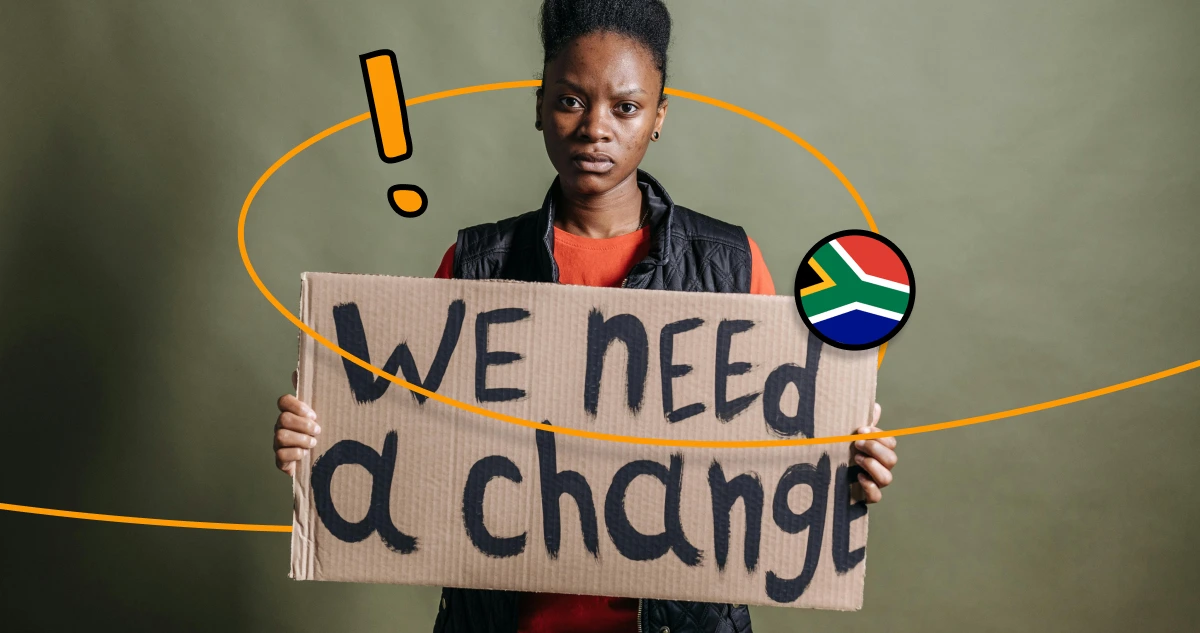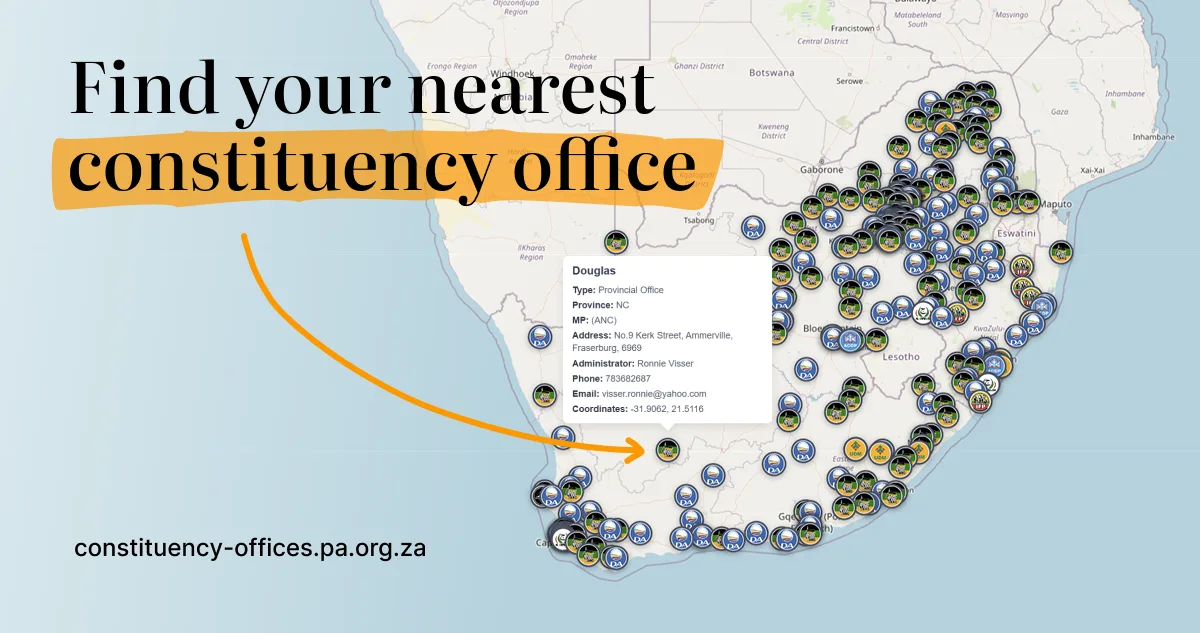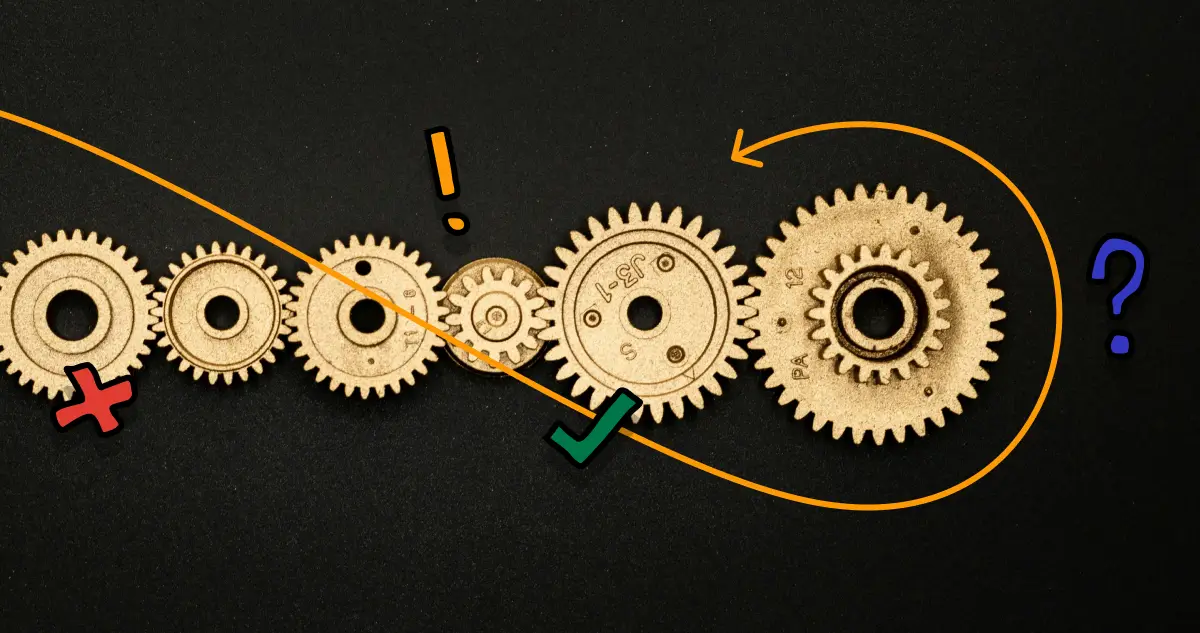On the International Day of Parliamentarism, OUTA calls on active citizens to get more involved in Parliament
Our Parliament is at its best when it is both watchdog and bridge: a watchdog that checks the power of the executive (the Cabinet), and a bridge for public participation in law-making and democracy.
South Africa needs Parliament to be strong, to stand up to the Cabinet, and defend democracy.
“We want South Africa’s 7th Parliament to reclaim its constitutional role and embrace a people-powered model of oversight. Parliament’s oversight must be fearless, and participatory. Only then can we build a state that serves its people, not itself,” says Dr Rachel Fischer, OUTA’s Parliamentary Engagement and Research Manager.
The International Day of Parliamentarism is on 30 June each year, and is a reminder of the value of a well-functioning parliament in a democracy.
“It’s the engine room of democracy – where laws are made, power is held to account, and the people’s voice should be loudest,” says a blogpost on the International Day of Parliamentarism on the ParliMeter website.
Parliament and the executive: distinct mandates
South Africa’s Constitution ensures that governance is distributed across three branches: the legislature (Parliament), the executive (the Cabinet) and the judiciary (the courts). This arrangement is not ornamental, but a safeguard against autocracy and a mechanism for accountable government.
Parliament is the legislative branch. Its core responsibilities are passing laws, overseeing executive action, and ensuring that government operates in the public interest. Members of Parliament (MPs) are elected to serve the people, not the president or their political parties. Their role includes scrutinising budgets, policies, and the implementation of legislation, as outlined in Section 55 of the Constitution.
Cabinet, by contrast, is the engine of the executive. It is composed of the president, deputy president and ministers (but not deputy ministers), and is responsible for the implementation of national policy and the administration of government. While Cabinet members may be drawn from Parliament, they serve a different function once appointed: they are decision-makers, not lawmakers. This distinction is vital. Parliament must oversee Cabinet, not merely rubber-stamp its initiatives.
Oversight undermined by party loyalty
The integrity of oversight has often been compromised by the dominance of party politics. In practice, MPs from majority parties may hesitate to challenge ministers who are senior party leaders. This has led to a diluted oversight culture where the executive operates with too little scrutiny, undermining public confidence and weakening governance. We saw this vividly during the state capture era – when Parliament, at critical moments, failed to act.
Strengthening accountability
Strengthening accountability requires the MPs to do their jobs, and do them very well. The 7th Parliament, voted in during last year’s elections, is showing encouraging signs of renewed interested in questioning, investigating and holding the executive accountable, regardless of political affiliation.
Public participation is another crucial aspect of strengthening accountability. Greater public participation ensures that the MPs’ oversight is better informed and more inclusive. The public can participate by making submissions and petitions to Parliament and attending public hearings, especially during formal public participation processes. Through these efforts, citizens can provide the data, insight and pressure that help hold government to account.
Unfortunately, participation in South Africa remains largely symbolic. Public hearings are often inaccessible, digital tools are underused and citizens rarely receive feedback on their inputs. Parliament must move beyond consultation toward collaboration, actively integrating citizen voices into its oversight priorities.
One promising framework is Parliament’s Oversight and Accountability Model (OVAC), which outlines mechanisms for assessing executive performance and was adopted by both houses of Parliament in February and March 2009. Yet, as has been observed, this model is often toothless, lacking consequences for non-compliance or misconduct. Parliament must urgently reform OVAC to include enforceable mechanisms, including disciplinary action and follow-up reporting.
Encouragingly, the 7th Parliament has prepared a Standard Operating Procedure (SOP) to enhance public participation and invited civil society organisations to comment on this.
Various departments in Parliament are promoting collaboration with external stakeholders, including regular engagements between committee chairpersons and the media and civil society. These are welcome developments in sharing knowledge and insights, and improving public participation.
There are also moves towards greater use of digital technology by Parliament to improve public access, such as virtual hearings, hybrid consultations and WhatsApp groups. These are cost-effective ways to expand participation, and require more investment in digital infrastructure and public education, especially in rural areas.
Civil society helping you: the ParliMeter
Last year, OUTA collaborated with OpenUp and PMG to develop a digital dashboard called the ParliMeter. This is an open-source platform to improve monitoring of parliamentary activities. The ParliMeter is co-funded by the European Union.
We call on Parliament to continue strengthening its collaboration with CSOs, and utilise ParliMeter to enhance its own oversight capabilities.

Work with us
We are looking for resource and data partners!
If you or your organisation would like to contribute or collaborate, please get in touch.
You might also like

Strengthening transparency & responsiveness: What our latest IDP assessments reveal about Parliament

Know Your MP: Find Your Constituency Office and Make Your Voice Heard




